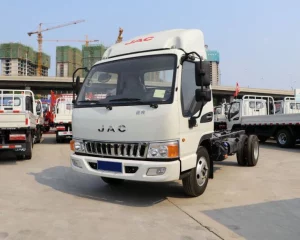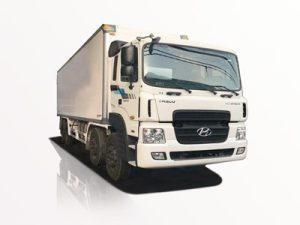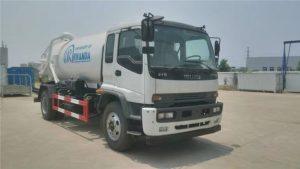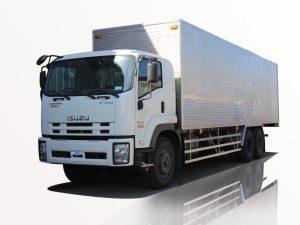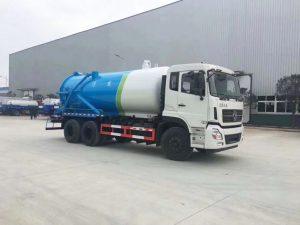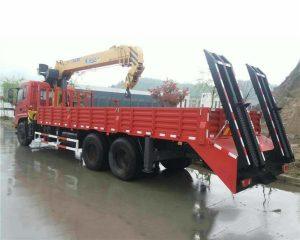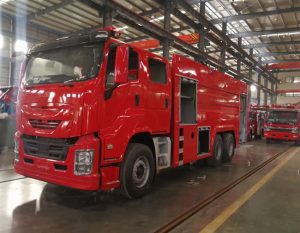Monday to Saturday - 8:00 -17:30
Everything You Need to Know About Small Fuel Trucks
Introduction
Small fuel trucks are essential vehicles in various industries, catering to the transportation and distribution of fuel. Unlike larger tankers, these trucks are designed for flexibility and maneuverability, making them ideal for urban environments, farms, construction sites, and more. In this article, we will delve into the various facets of small fuel trucks, including their features, benefits, maintenance tips, and much more to give you a comprehensive understanding of these versatile vehicles.
What is a Small Fuel Truck?
A small fuel truck is a road vehicle equipped with a tank for carrying fuel. Typically, these trucks can handle various fuel types such as diesel, gasoline, and kerosene. They serve numerous applications, including refueling construction equipment, delivering fuel to farms, and providing fuel for generators at events or festivals.
Characteristics of Small Fuel Trucks
- Capacity: Generally ranges from 100 to 1,000 gallons.
- Size: More compact than regular fuel tankers, facilitating easy navigation through small spaces.
- Compatibility: Able to transport multiple kinds of liquid fuels.
- Regulatory Compliance: Must meet safety and environmental standards.
Types of Small Fuel Trucks
1. Flatbed Fuel Trucks
Flatbed small fuel trucks have a flat surface without sides or a roof. They are flexible for loading different types of fuel tanks or containers.
2. Box Trucks
Box trucks come with a closed cargo area which protects the fuel from environmental factors. These trucks often have a built-in pump for easy fuel dispensing.
3. Service Fuel Trucks
Designed specifically for servicing construction or farm equipment, these trucks have tool compartments alongside the fuel tank.
Benefits of Using a Small Fuel Truck
Flexibility and Accessibility
Small fuel trucks can reach locations that larger trucks cannot due to their size, allowing for efficient service wherever needed.
Cost-Effective
In terms of operation and maintenance, small fuel trucks are less expensive compared to larger counterparts, making them an economical choice for businesses.
Customizable Options
Many small fuel trucks can be customized according to specific business needs, including tank sizes, pump types, and compartment layouts.
Features to Consider When Purchasing a Small Fuel Truck
1. Tank Size
The tank size should match your required fuel capacity and frequency of use. Smaller operations may only need a 300-gallon truck, while larger operations may require a 1,000-gallon capacity.
2. Engine Type
Choose between gasoline and diesel engines. Diesel engines typically provide better fuel efficiency but may have higher emissions.
3. Associated Equipment
Look for trucks equipped with quality dispensers and hosing systems. Some trucks also feature built-in filtration systems to ensure clean fuel delivery.
Maintenance Tips for Small Fuel Trucks
Regular Inspections
Perform regular inspections to ensure that the tank, pumps, and hoses are in good condition. Look for signs of wear and tear or leaks.
Fuel Quality Checks
Regularly test the fuel quality being dispensed from the truck to prevent contamination issues.
Oil Changes
Adhere to the manufacturer’s recommendations for oil changes to maintain engine performance.
Real-Life Applications
1. Construction Sites
Small fuel trucks are widely used at construction sites to refuel heavy machinery such as excavators and bulldozers.
2. Agriculture
Farmers often use small fuel trucks to deliver fuel to tractors and other agricultural equipment, ensuring operations run smoothly.
3. Events and Festivals
During large events, small fuel trucks can provide necessary fuel for generators, making them indispensable for event logistics.
Cost Considerations
Initial Investment
The price of a new small fuel truck can range from $20,000 to $100,000 depending on its specifications and features.
Operating Costs
Operating costs include fuel, insurance, maintenance, and any licensing requirements.
Potential Savings
Establishing an in-house fueling system using a small fuel truck can significantly reduce the costs associated with frequent fuel purchases from gas stations.
Regulations and Compliance
Local and Federal Regulations
Understanding local laws and regulations regarding the transportation and storage of fuels is crucial. Always consult with regulatory bodies to ensure compliance.
Insurance Requirements
Proper insurance coverage is necessary to protect against liabilities associated with spills or accidents during transportation.
FAQs
1. What is the average capacity of a small fuel truck?
The average capacity ranges from 300 to 1,000 gallons, depending on the specific model.
2. How do I maintain my small fuel truck?
Regular inspections, fuel quality checks, and timely oil changes are essential for maintenance.
3. Can small fuel trucks be used for different types of fuel?
Yes, many small fuel trucks are designed to transport multiple types of fuel, including diesel, gasoline, and kerosene.
4. Are small fuel trucks customizable?
Absolutely! Many manufacturers offer customization options to tailor trucks according to specific needs.
5. What regulations should I consider when operating a small fuel truck?
Both local and federal regulations regarding fuel transportation, storage, and safety must be adhered to when operating a small fuel truck.
6. What is the typical price range for a small fuel truck?
The cost can range from $20,000 to $100,000 based on specifications and features.
Conclusion
Small fuel trucks serve a vital role in various applications, offering flexibility, efficiency, and economical solutions for fuel transportation. Whether you’re in construction, agriculture, or events management, understanding the features, benefits, and requirements of small fuel trucks can help you make informed decisions. Regular maintenance and compliance with regulations are essential to ensure the safe and effective operation of these vehicles, enabling businesses to thrive.


